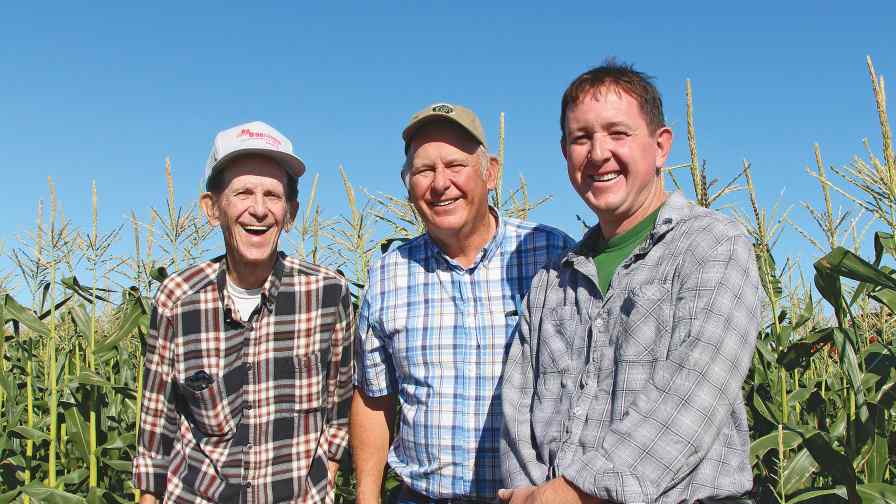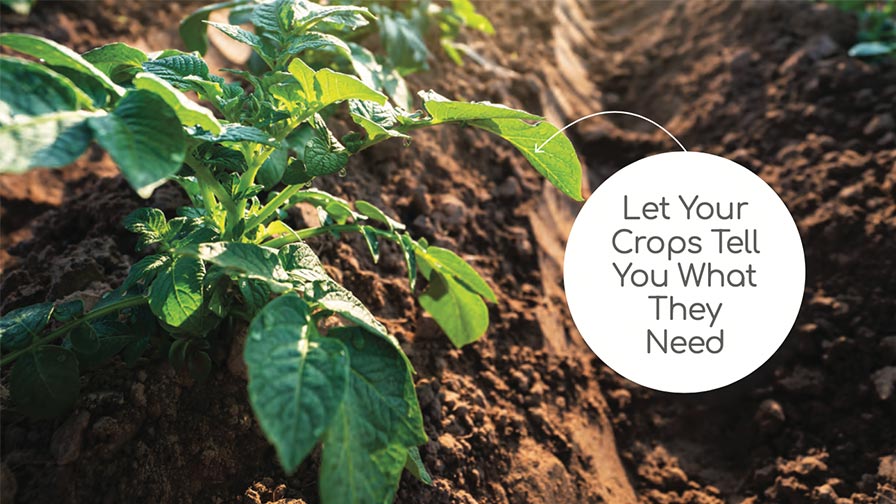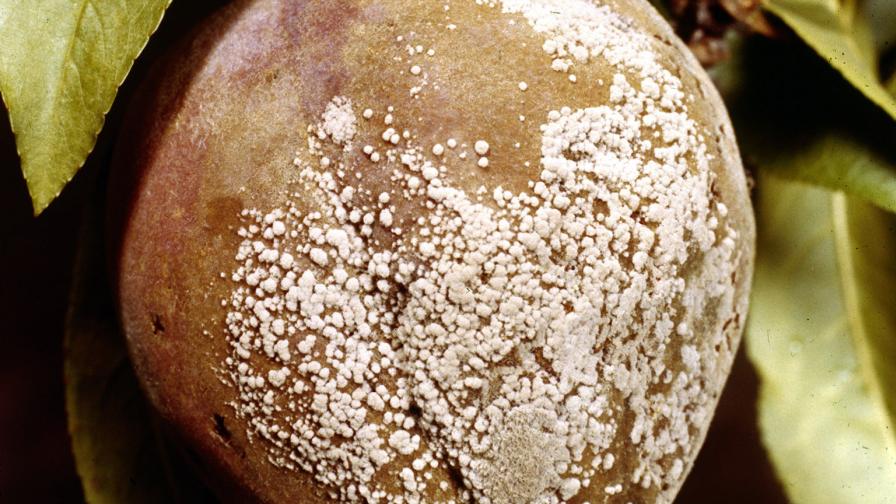6 Steps To Increase Efficiencies On The Farm

The principal players at Turek Farms include (from left) David, Frank Jr., and Jason Turek.
Photo by Rosemary Gordon
Turek Farms is a self-sufficient operation from food safety to planting to the repair of machines. Attention to detail and knowing markets has helped this New York farm flourish over the years.
Those at the helm each have their respective jobs. In spite of the fact that two of the senior owners say “farming today isn’t what it used to be,” the youngest partner, Jason Turek, has plans to expand.
But this isn’t a story about a big farm getting bigger. It’s a story of a grower that’s continually evolving, and doing whatever it takes to generate profits, save money, or simply opt for a better way to get something done. For those not farming on such a large scale as the Tureks, don’t worry. Here are six pointers growers of any size can incorporate that may help increase efficiencies on your farm.
1. Partner With Your Peers
Striving to meet the needs of consumers for sweet corn on a year-round basis, the Tureks opted to partner with other growers to ensure a steady supply as their core business is up and down I-95. To date, they have partnerships to source sweet corn with three growers in three states: Florida, Georgia, and Delaware. The first partnership was formed about 10 years ago and as a result, the Tureks have gained a network of people to bounce business ideas around with, and it has helped them increase efficiencies, especially in the area of harvesting.
“Our partners in Florida are in the harvesting business,” he explains. “The continuity allows us to keep the harvesting crew busy. This season has been bad (due to weather), and there will be some big gaps in planting but the general thought is if you can keep a crew together and keep the middle management and supervisors together, you have a much stronger team.”
The Tureks also work with a transportation coordinator who has been with them for more than 20 years. “It helps to keep someone like that because they understand the business, and when you have things going on all year long, the trucks are there when you are busy and you need them,” he says.
2. Invest In Your Facilities
To keep the sweet corn cool after harvest, for the past 30 years the Tureks purchased ice from a local vendor. Every load left the farm with a minimum of 3,000 pounds of ice and sometimes as much as 4,500 pounds.
When the local vendor announced he was retiring about a year ago, the Tureks decided to create their own on-site facility. With the goal of sourcing some used equipment, it took some time to get everything together. In fact, they wound up buying ice builders on eBay from someone in California.
“We bought the ice builders used for 30 cents on the dollar of what it would cost new. It was a huge investment and took way more coordination trying to figure out exactly how we wanted to set it up,” Jason says. “Plus, we wanted to set it up so we can use it for more than just sweet corn.”
In addition to sweet corn, the current plan is to use the ice plant for broccoli, Brussels sprouts, and greens. The facility, which is about 50 feet by 70 feet and about 30 feet tall, will be capable of making 50 tons of ice per day.
In addition to the ice plant, the farm is in the beginning stages of building a new machine shop. With more than 150 pieces of equipment that must be maintained on an annual basis, Jason says the farm’s current facility simply is not large enough to ready all the machines by spring, especially when planting so many different crops.
When you factor in erratic weather, and the possibility of getting one good day out of two weeks to plant a crop, Jason says “you better have a lot of equipment to throw at it. That is kind of how our planting schedule works.”
3. Test New Varieties
Being such a large farming operation, seed companies conduct on-farm variety trials, which provide the Tureks with first-hand knowledge of how new varieties will perform.
“It is exciting when you work with [seed companies] and you get the opportunity to see varieties that are not commercial,” he says. “A lot of times the varieties that work well in the Southeastern part of the country don’t work as well in the Northeast and vice versa. When doing a small trial on a small scale you get to see how they will perform, and you get to take a look at these newer varieties before a lot of other people have that chance.”
Jason points out, however, that some of the best eating varieties won’t perform well in his environment and some that grow really well aren’t the best eating varieties. In recent years, he says there has been a big emphasis on flavor and taste and less on performance. “At the end of the day, though, you want to have as many boxes per acre as you can,” he adds.
4. Maintain An IPM Edge
In addition to having seed companies conduct variety trials on their farm, the Tureks also have the advantage of being about 20 miles from Cornell University. As a result, they have had a decades-long relationship with researchers at the school, getting first-hand information on crop protection and IPM tactics.
The relationship started in the 1960s, Jason says, and the farm was one of the first in the country to use IPM techniques. In the last 10 years, however, Turek Farms has also had an opportunity to work with various crop consultants and scouts, so much of the information and trial data they are using comes out of private industry as well as the University.
“In sweet corn we tried [beneficial] wasps, and in cabbage we have used Bts (Bacillus thuringiensis), but it has always been in conjunction with crop protectants,” Jason explains. “I think [biocontrols] help supplement and if we can spend less overall that is a good thing, but at the end of the day we have to make sure we have U.S. Fancy grade product going into the box.”
5. Stay On Track With Food Safety
The final Food Safety Modernization Act (FSMA) rule on Produce Safety was released last fall.
It is now just a matter of time before many growers need to be in compliance with the law. Fortunately for the Tureks, this is not an issue as the farm has been on top of what will be required for some time.
Jason’s wife, Tina, is in charge of the farm’s food safety protocols, but he is quick to point out that food safety is a commitment from everyone, top to bottom.
“Tina saw [FSMA] coming a few years ago so in that regard, we are in good shape,” he says. “I’m upset with the [Produce Safety] rule in general in that some [small] operations are excluded.”
The size of the farm does not matter when it comes to a foodborne illness outbreak, Jason says. “Even if one or two sicknesses occur, that is too many,” he adds.
6. Plan For The Future Of Your Farm
Working with his dad, who is in his early 70s, and his uncle, who is in his late 60s, Jason says the operation is running smoothly because each person has a defined role on the farm. He also mentions they have a great team of employees, some of whom have been with the farm for more than 20 years.
Not resting on their laurels, the Tureks’ plan for the future is to expand and purchase land outside of New York and possibly bring more partner growers into the fold.
“New York is a big dairy state and there is a lot of competition for land,” he says. “We are looking at land in other states that would complement our current operations.”
He also is keeping himself open to the possibility of one day having one (or all) of his three kids (10-year-old twins, a boy and a girl, and a 7-year-old son) working in the family business. That day, however, is a long way off.
Before that can happen, Jason says they need to get educated. Plus, they have to want to work on the farm. “They have to know that in their hearts this is what they want to do because it is a life-long commitment,” he adds.
Currently, Jason along with his father and his uncle are meeting with consultants to continue the estate planning and transition process, and the plan moving forward is to stay flexible and take
advantage any new opportunities.
“Our goal is to never let anyone down,” he explains. “When customers ask for [our product] we want to have it.”
Turek Farms At A Glance
Location: King Ferry, NY
Owners: David, Frank Jr., and Jason Turek
Crops: Sweet corn, pumpkins, squash, green beans, and cole crops
Acreage: 4,000
About the operation: Turek Farms, in its current formation, began in 1969, but the family farming operation was founded in the 1930s. Today, the farm employs a fourth generation and is noted as one of the largest vegetable operations in New York. The farm’s partners include the father-and-son team of David Turek and his son Jason as well as David’s brother, Frank Turek Jr.
The farm sells all of its produce through Cayuga Produce, Inc., its marketing arm.










